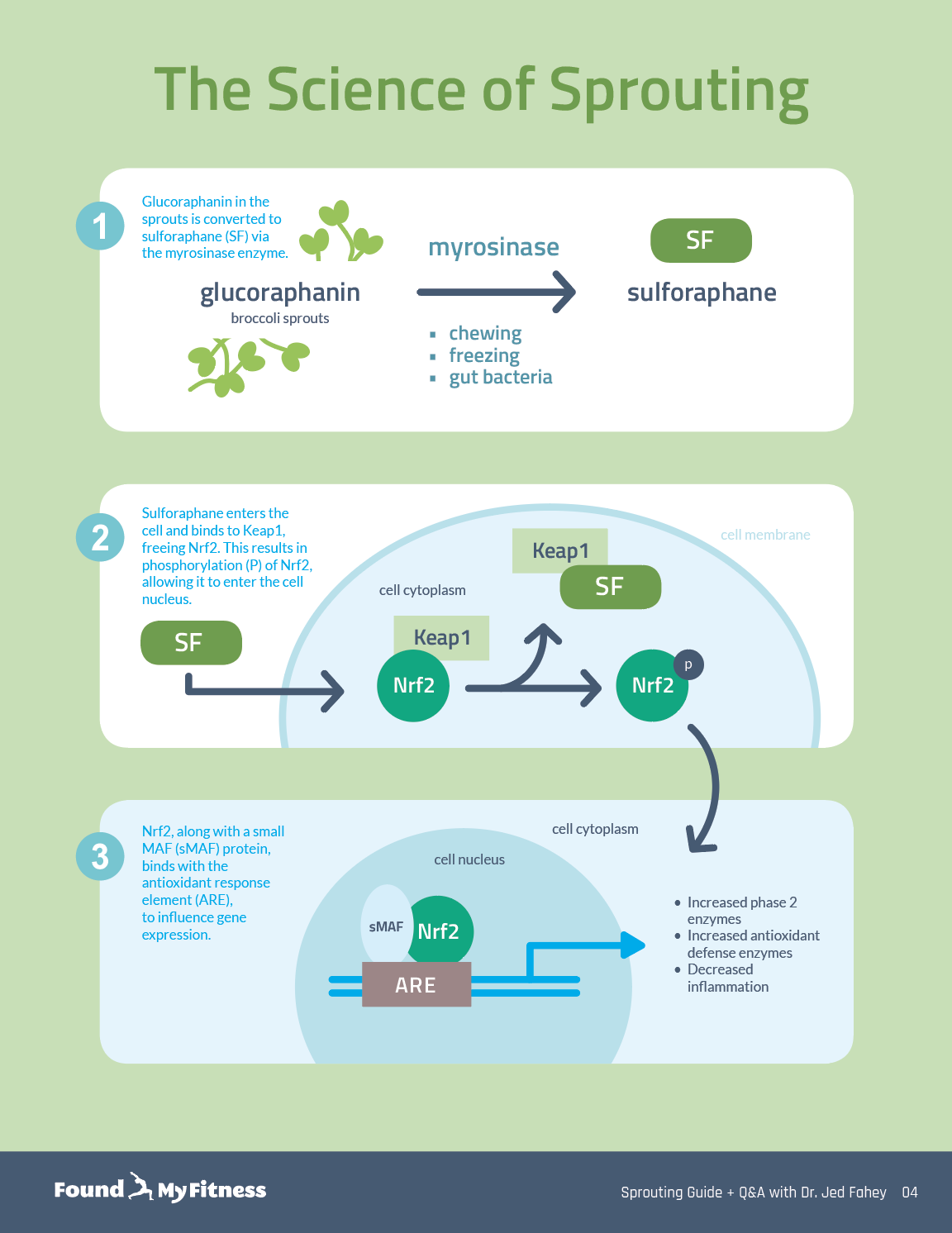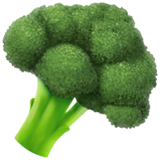Is there an upper limit to broccoli sprout consumption? | Jed Fahey
Enter your email to get our 15-page guide to sprouting broccoli and learn about the science of chemoprotective compount sulforaphane.
Broccoli sprouts are concentrated sources of sulforaphane, a type of isothiocyanate. Damaging broccoli sprouts – when chewing, chopping, or freezing – triggers an enzymatic reaction in the tiny plants that produces sulforaphane.

Get the full length version of this episode as a podcast.
This episode will make a great companion for a long drive.
Choosing how much broccoli or broccoli sprouts to eat is really up to individual tolerance. Isothiocyanates are inherently bitter, and the human body naturally resists the intake of bitter foods. Aiming for 2 to 4 ounces of sprouts per day is a reasonable and healthy goal. (Most grocery store clamshell packages of broccoli sprouts contain about 4 ounces.) In this clip, Dr. Jed Fahey discusses how much broccoli or broccoli sprouts one should eat for optimal health.
-[Jed Fahey]: I view food consumption as very much a matter of taste. I mean you're not just choking down medicine. So people are going to limit their consumption of broccoli sprouts or market-stage broccoli. And I think, as from my observation, the practical limit is that people that do eat sprouts are not going to eat more than a couple of ounces, maybe three or four ounces at most, in a serving, in a meal, of broccoli sprouts. I'm not wild about the taste of them myself. I do eat them, but...
So I think there's an auto-limitation to the sort of ceiling on that. Now if we knew that there was a variety of broccoli that was producing super extremely high glucoraphanin sprouts, you know, maybe we would want to talk about, "Okay, two ounces is plenty for a serving," or in a day. But we're not at all there.
So in terms of eating, I think your body and your taste buds and your food preferences are going to regulate that. I wish we could sway the same thing about...you know, about sugar, but unfortunately the control mechanism seems to be a little bit bypassed there by pure...you know, crystalized cane sugar.
A glucosinolate (see definition) found in certain cruciferous vegetables, including broccoli, Brussels sprouts, and mustard. Glucoraphanin is hydrolyzed by the enzyme myrosinase to produce sulforaphane, an isothiocyanate compound that has many beneficial health effects in humans.
An essential mineral present in many foods. Iron participates in many physiological functions and is a critical component of hemoglobin. Iron deficiency can cause anemia, fatigue, shortness of breath, and heart arrhythmias.
Hear new content from Rhonda on The Aliquot, our member's only podcast

Listen in on our regularly curated interview segments called "Aliquots" released every week on our premium podcast The Aliquot. Aliquots come in two flavors: features and mashups.
- Hours of deep dive on topics like fasting, sauna, child development surfaced from our enormous collection of members-only Q&A episodes.
- Important conversational highlights from our interviews with extra commentary and value. Short but salient.
Sulforaphane News
- Broccoli seed extract with a sulforaphane precursor reduced common cold symptom days in healthy adults.
- Sulforaphane-rich broccoli sprout extract modestly lowers fasting blood sugar in some people with prediabetes, perhaps due to variations in gut microbiota and individual metabolic traits.
- Sulforaphane, derived from broccoli, activates Nrf2, mitigating age-related skin changes and boosting the antioxidant defense system in mice.
- Sulforaphane from broccoli sprouts shows promise in preventing Alzheimer's disease – boosting memory and enhancing mitochondrial function in mice.
- Breathwork enhances endogenous antioxidant enzyme activity to counter oxidative stress.






